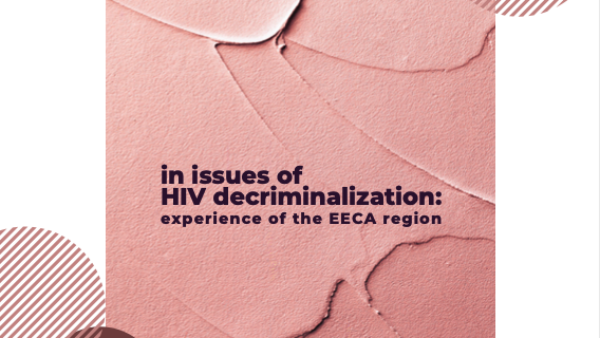Overview
Serbia has an HIV-specific law criminalising HIV ‘exposure’ and transmission, with varying levels of culpability.
In 2005, Serbia adopted a new Criminal Code which, for the first time, contained an HIV-specific offence, ‘transmitting HIV infection’. Prior versions of the Criminal Code penalised transmission of infectious and sexually transmitted diseases (1977, Article 122), and later, ‘particularly dangerous diseases’ (2002, Article 122a), with a maximum penalty of five years’ imprisonment, however, these provisions did not explicitly address HIV.
Article 250 of the 2005 Criminal Code consists of multiple paragraphs with varying levels of culpability, and corresponding levels of punishment. Academic analysis has elaborated on the scope of these elements of the offence of transmitting HIV infection.
Paragraph 1 applies to cases of knowing ‘exposure’ to HIV with a penalty of up to two years’ imprisonment. This seemingly requires conscious ‘exposure’, i.e. exposure that is a foreseen and desired consequence of the act. However, the law is not explicitly limited to people living with HIV, and could therefore include ‘exposure’ by people not living with HIV who fail to take appropriate preventative measures to avoid transmission, such as healthcare professionals handling medical equipment and undertaking procedures.
Paragraph 2 applies where someone knowingly fails to follow regulations and measures established for HIV prevention, and as a result negligently causes HIV transmission. A penalty of one to five years’ imprisonment applies in these cases. This may apply both to healthcare professionals handling medical equipment and undertaking procedures, or to individuals who fail to take protective measures such as using condoms during sexual relations. In any case, transmission must occur.
Paragraph 3 relates to intentional transmission of HIV, which carries a penalty of two to 12 years’ imprisonment. Explicitly, it applies to people living with HIV who have the intention to transmit and where transmission actually occurs. However, academic analysis has suggested that attempts to transmit, where transmission does not in fact occur, could also be prosecuted under paragraph 3 on the lower end of the penalty range.
Paragraph 4 enhances the penalty for the offence under paragraph 3 to three to 15 years’ imprisonment where death results.
Finally, paragraph 5 lowers the penalties established in paragraphs 3 and 4 to up to three years’, and six months to five years’ imprisonment, respectively, where the offence is committed through negligence. In effect, this applies in cases where the person living with HIV was aware that transmission was a likely consequence of their act – more than a mere awareness of general risks – and committed that act regardless, resulting in transmission.
Although the Criminal Code also includes an offence criminalising the transmission of contagious diseases generally (Article 249), the penalty provided is much lower at up to three years’ imprisonment.
There have been at least four criminal cases under the existing and previous Criminal Codes involving alleged HIV ‘exposure’ or transmission.
A media report in 2005 appears to refer to the first criminal case involving alleged HIV transmission in Serbia, which occurred under the now superseded 2002 Criminal Code. In this case, a woman filed a criminal complaint against her husband after allegedly finding out that he had been living with HIV during their five years of marriage. The facts on the case are very limited, and it is not clear whether HIV was in fact transmitted, however the complaint was under the offence of transmitting a ‘particularly dangerous disease’.
According to a 2023 academic paper, there have been two convictions for the offence of transmitting HIV infection under the 2005 Code, both of which occurred in 2008. However, we are not aware of the circumstances of these cases.
Lastly, a 2016 academic paper examining phylogenetic analyses in Serbia refers to a fourth case. This involved a husband and wife and a woman who the man was having an affair with, who had all been diagnosed with HIV in 2011. The husband brought a criminal complaint against the woman, alleging that she had transmitted HIV to him and subsequently, to his wife. The phylogenetic analysis of this case suggested that transmission had in fact occurred from the man to both women. The outcome of the criminal case is not known.
Laws
Criminal Code
Article 250. Transmission of HIV infection
(1) Whoever knowingly endangers another with infection by the HIV virus shall be punished by imprisonment of up to two years.
(2) Whoever knowingly fails to observe regulations and measures relating to the prevention of the spread of HIV infections to other persons and thereby from negligence transmits an HIV infection to another person, shall be punished by imprisonment of one to five years.
(3) Whoever knowing that he/she is infected with HIV knowingly transmits the infection to another person shall be punished by imprisonment of from two to twelve years.
(4) If the offence referred to in paragraph 3 of this Article results in death of the infected person, the offender shall be punished by imprisonment of from three to fifteen years.
(5) If the offence referred to in paragraph 3 of this Article is the result of negligence, the offender shall be punished for the offence referred to in paragraph 3 of this Article by imprisonment of up to three years, and for the offence referred to in paragraph 4 of this Article by imprisonment of from six months to five years.
Criminal Code
Article 249. Transmission of Contagious Diseases
Whoever fails to act pursuant to regulations, decisions or orders for suppression or prevention of contagious decease and thereby a contagious disease is transmitted, shall be punished by imprisonment of up to three years.
Criminal Code
Article 122a
Whoever, knowing that he is infected with a particularly dangerous disease, infects another with that disease who did not know or could not have known about his disease, shall be punished by imprisonment from six months to five years.
Acknowledgements
Our thanks to Tanja Dimitrijevic for her research assistance in confirming the current relevant legislation.
HIV Justice Network's Positive Destinations
Visit the Serbia page on Positive Destinations for information on regulations that restrict entry, stay, and residency based on HIV-positive status, as well as access to HIV treatment for non-nationals.


